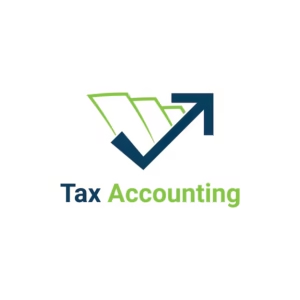Many businesses in the UAE struggle with Tax Reporting. Late filings, missed deadlines, or inaccurate entries often lead to fines and reputational damage. Even one error in your taxation records can trigger audits or legal complications. The increasing complexity of compliance standards only adds more stress to businesses.
This guide simplifies everything you need to know about Tax Reporting in the UAE. Learn what’s required, how to stay compliant, and how to avoid penalties—whether you’re a startup or an established entity.
Why Accurate Tax Reporting Matters More Than Ever
Tax Reporting is not just a legal formality—it directly impacts your financial stability and reputation. UAE’s Federal Tax Authority (FTA) is strict about timelines and accuracy. Filing incorrect or incomplete information can result in severe financial penalties.
Moreover, taxation is becoming more interconnected across departments. For instance, financial statements must now align with VAT(Value Added Tax) and Corporate Tax filings. Inconsistent records raise red flags and slow down business operations.
Timely, accurate reporting helps avoid risks and allows better control over your company’s cash flow, tax planning, and future budgeting. It also builds credibility with banks and investors.
What Exactly Is Tax Reporting?
At its core, Tax Reporting refers to the process of submitting your financial records to tax authorities, reflecting all taxable transactions for a specific period.
In the UAE, this includes:
- VAT returns
- Corporate Tax filings
- Excise Tax (if applicable)
- Economic Substance Regulations (ESR)
- Country-by-Country Reporting (CbCR) for large multinational groups
It ensures that your business meets the legal obligations under UAE taxation law. The documents usually cover income, expenses, assets, liabilities, and any tax owed or refundable.
A well-structured report provides a clear picture of your tax position and supports financial planning.
Common Mistakes in Tax Reporting (And How to Avoid Them)
Even experienced businesses sometimes make critical errors in their Tax Reporting. Here are the most frequent ones:
1. Missing Deadlines
Delays can result in immediate penalties. Set automated reminders and plan for early submission.
2. Inconsistent Data
Mismatch between VAT and accounting data often causes issues. Always reconcile before filing.
3. Poor Record-Keeping
Missing invoices or unclassified expenses lead to misreporting. Store digital copies and tag every entry.
4. No Expert Review
Relying only on internal staff can be risky. Always have a qualified tax consultant review the filings.
By fixing these issues, businesses can stay compliant and avoid last-minute stress.
The Step-by-Step Process for Tax Reporting in UAE
Let’s break it down into simple, actionable steps:
Step 1: Collect All Financial Records
Start with income, purchases, sales, and expenses for the reporting period. Include supporting documents like invoices, receipts, and contracts.
Step 2: Review Tax Obligations
Confirm whether you’re liable for VAT, Corporate Tax, Excise Tax, or ESR. Each comes with different filing dates and formats.
Step 3: Reconcile Accounts
Make sure figures in your accounting software match those in your VAT and tax return drafts. Use trial balances for quick checks.
Step 4: Prepare Tax Return
Using the correct forms, enter figures and verify input/output taxes, profits, adjustments, or exemptions.
Step 5: Review & Submit
Get a tax advisor to review. Then, log in to the FTA portal and submit the return before the due date.
Step 6: Archive Properly
Keep backup copies of all submissions and acknowledgments for at least 5 years.
How Tax Reporting Connects with Broader Taxation
Taxation in the UAE involves more than just calculating what you owe. It’s a broader system covering different tax types and reporting rules. Tax Reporting is the mechanism that links all these areas.
For example:
- VAT: Reports must reflect standard rated, zero-rated, and exempt supplies.
- Corporate Tax: Requires calculation of adjusted taxable income.
- Excise Tax: Involves detailed movement of stock and warehouse data.
If your Tax Reporting isn’t aligned with other compliance efforts, you risk triggering an audit.
Benefits of Timely and Compliant Tax Reporting
Doing Tax Reporting right brings long-term advantages:
- Avoid Penalties: Late or incorrect filings attract fines. Accuracy keeps you safe.
- Financial Clarity: Reports give you a clear understanding of business health.
- Investor Trust: Compliant businesses attract better investment opportunities.
- Faster Loan Approvals: Banks require up-to-date tax records for credit approval.
- Audit Preparedness: Clean records reduce the chances of lengthy audits.
In short, proper reporting protects your business and opens growth opportunities.
Who Should Handle Your Tax Reporting?
You can manage Tax Reporting in-house, but it’s risky without the right expertise. Here are the options:
In-House Accountant
Good for small businesses, but ensure they’re trained on UAE tax laws and updates.
Tax Consultant
Ideal for complex tax needs. They understand laws, changes, and how to handle multi-layered filing processes.
Outsourced Tax Firm
Best for growing companies. Offers scalable services, compliance assurance, and peace of mind.
Regardless of who handles it, regular audits and reviews are critical for maintaining accurate reporting.
Tools That Make Tax Reporting Easier
Today, several software options can simplify Tax Reporting:
- Zoho Books
- Tally ERP
- Xero
- QuickBooks Online
- FTA e-Services Portal
These tools help track expenses, generate VAT reports, and prepare tax returns. They reduce manual entry errors and save time. Just make sure they’re updated for the latest taxation regulations in the UAE.
Key Deadlines You Can’t Miss
UAE tax laws are strict about submission dates:
- VAT Returns: Usually due quarterly, 28 days after the period ends.
- Corporate Tax: Depends on financial year-end. Filing is within 9 months of that date.
- Excise Tax: Filed monthly.
- ESR Reports: Submitted annually, within 12 months of financial year-end.
- CbCR Notification: Must be submitted by the end of the financial year.
Missing any of these can result in financial penalties, suspension of trade licenses, or legal consequences.
Final Thoughts: Tax Reporting Is an Ongoing Commitment
Tax Reporting isn’t a once-a-year task. It’s an ongoing responsibility that affects every aspect of your business operations. By staying consistent, organized, and informed, you can protect your company from costly mistakes.
If you’re unsure where to start, consider consulting a licensed tax advisor. The cost of getting it wrong is far higher than the cost of doing it right from day one.







